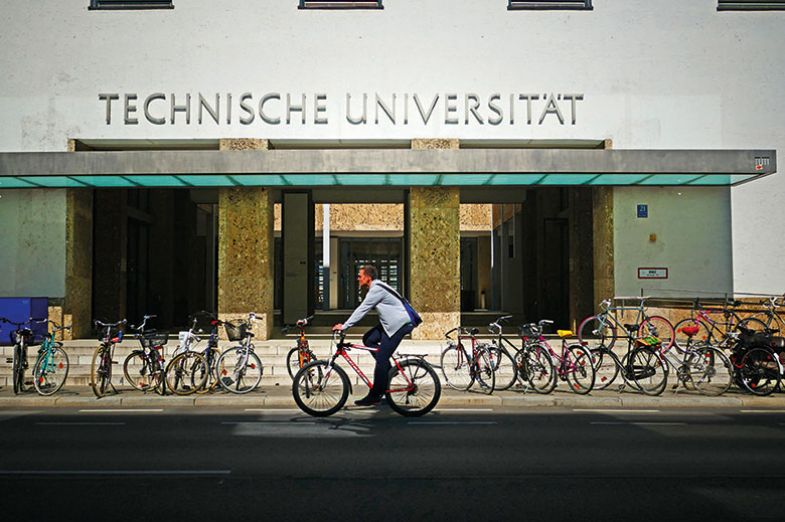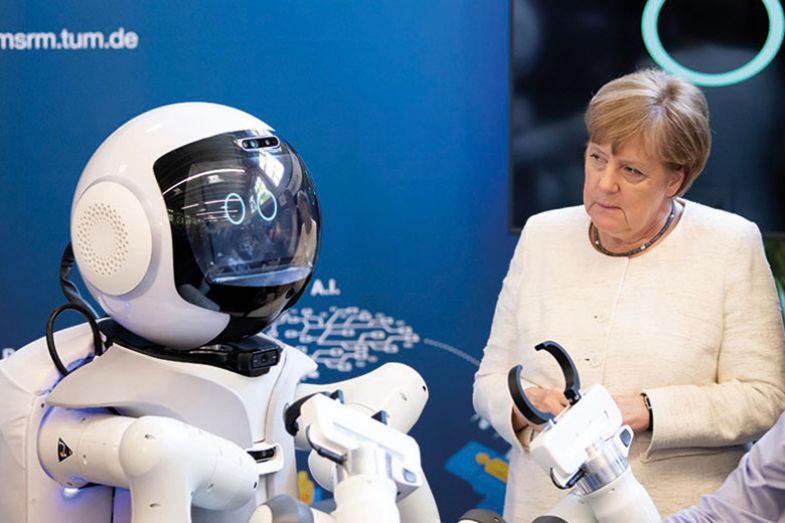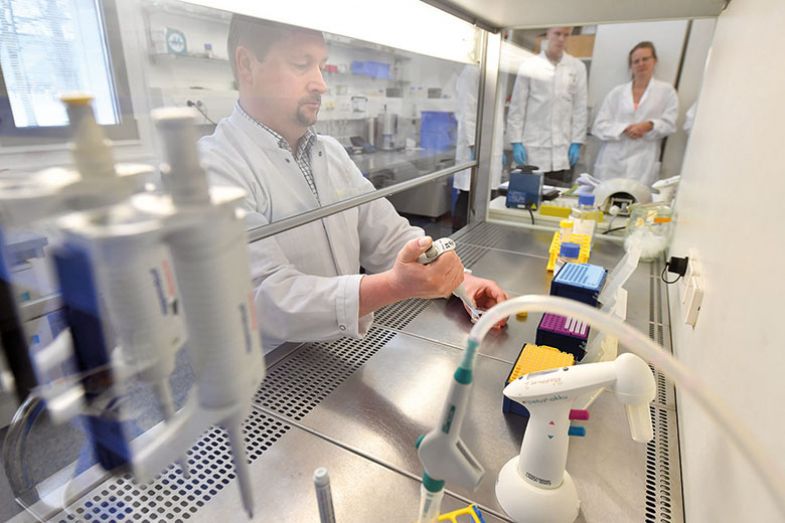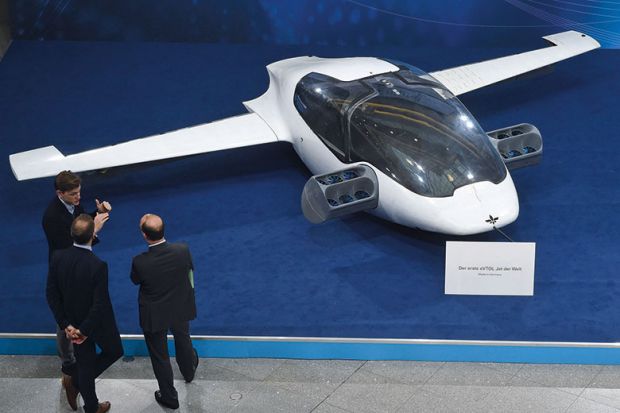Browse the full results of the World University Rankings 2020
With an entrepreneurial and innovative spirit and excellent graduates, the Technical University of Munich (TUM) has made important contributions to the “Made in Germany” technology brand over the past 150 years. Following in the footsteps of such illustrious inventors as Carl von Linde, who developed the first practical refrigeration machine, and Rudolf Diesel, whose engine redefined mobility, high-tech start-ups from TUM such as Celonis (process mining), NavVis (indoor navigation systems), Konux (artificial intelligence/internet of things sensors) and Lilium (electric air taxis) are creating innovations that will shape the world of tomorrow.
But transformative scientific advances, structural changes in the economy, social paradigm shifts and rapidly developing labour markets pose challenges to education, innovation, products and services across all technology sectors: energy and climate, resources and the environment, mobility and infrastructure, health and nutrition, information and data security. Against the backdrop of a changing global order and evolving value systems, we as a technical university are under a greater obligation than ever to align our research and innovation processes more closely with the values, needs and expectations of society.

As a result, our future mission can be summed up as responsible research and innovation. This signals the start of one of the biggest reform initiatives in our history. We will build on our traditionally product- and production-focused engineering approach, defined by quality, precision, durability and reliability, and make the transition to human-centred engineering. That will entail a fundamental transformation of our research and teaching formats through the adoption of interactive processes. The fields of engineering, natural and life sciences and medicine will work closely with the humanities and the social sciences. Business management skills, along with political leadership and decision-making capabilities, will be integrated to form the basis for responsible innovation meeting the needs of society.
Building on the successes of our Munich Center for Technology in Society, we will step up and diversify the inclusion of humanities and social sciences to investigate the interdependency between technology, science and society. With the new TUM Institute for Technology Design, we will use design thinking methodologies in teaching, research and innovation processes to establish user-oriented solutions for complex technical issues.

To implement this strategy, we will draw on TUM’s strengths in various disciplines as a fundament. However, we will vitalise research activities by restructuring fields of study under the governance structure of a matrix-type school system: the 15 traditional departments will be replaced by seven interdisciplinary schools. This will expand TUM’s radius of activity at the interfaces of the classical disciplines, including its strong presence in the medical field. New TUM Innovation Networks will act as “scientific speedboats”, opening up access to new fields of research. A service-oriented, digitised and internationally focused university administration is boosting the efficiency of this matrix structure.
Eliminating traditional boundaries between disciplines will also create fresh potential in teaching. A TUM Institute for Study and Teaching will be established with the mission of activating new transdisciplinary approaches to modern teaching and developing personalised and talent-focused degree programmes linking different schools. That can also mean studying specialised fields in greater depth and discarding obsolete content. Through the integration of the humanities and the social sciences into our educational formats, we want to foster new mindsets to promote responsibility, both in attitudes and actions, and support students in sharpening their values. With the aid of the TUM EdTech Lab, we will develop new blended learning formats and project-based and problem-oriented teamwork to instil cognitive flexibility, creativity and entrepreneurial curiosity among our young talents.

Along with academic teaching that takes in the big picture, another guiding principle at TUM is the promotion of diversity among our young researchers. With the launch of a faculty tenure-track system in 2012, we defined a new direction for Germany’s faculty appointment system. Today, more than 110 tenure-track professors are conducting research and teaching at TUM. The average age at appointment is 34 years, 39 per cent are women and 40 per cent are non-German citizens. As a result, TUM is becoming younger and has greater cultural and gender diversity.
As a pioneering initiative for German universities, we have also launched an innovative career development programme for the promotion of mid-level teaching and research staff. This will be supported by the new TUM Institute for Lifelong Learning, which will provide tailor-made continuing education opportunities in an era of rapid technological development and fast-changing employment markets. These will also be available to TUM graduates after entering the career world.

In the future, competition will be stronger among innovation ecosystems – such as the San Francisco Bay Area and Boston in the US and the golden triangle (London, Oxford and Cambridge) in the UK – than between individual universities. With the One Munich Strategy, TUM is working with LMU Munich to implement a process that will take advantage of Munich’s strong scientific and business environment and accelerate the dissemination of innovation into business and society.
We are delighted that this concept impressed the experts judging the Germany-wide excellence competition and that they selected TUM as a university of excellence for the third consecutive time in July. Together, we are embarking on an exciting future.
Thomas Hofmann is senior vice-president for research and innovation at Technical University of Munich
Register to continue
Why register?
- Registration is free and only takes a moment
- Once registered, you can read 3 articles a month
- Sign up for our newsletter
Subscribe
Or subscribe for unlimited access to:
- Unlimited access to news, views, insights & reviews
- Digital editions
- Digital access to THE’s university and college rankings analysis
Already registered or a current subscriber? Login









